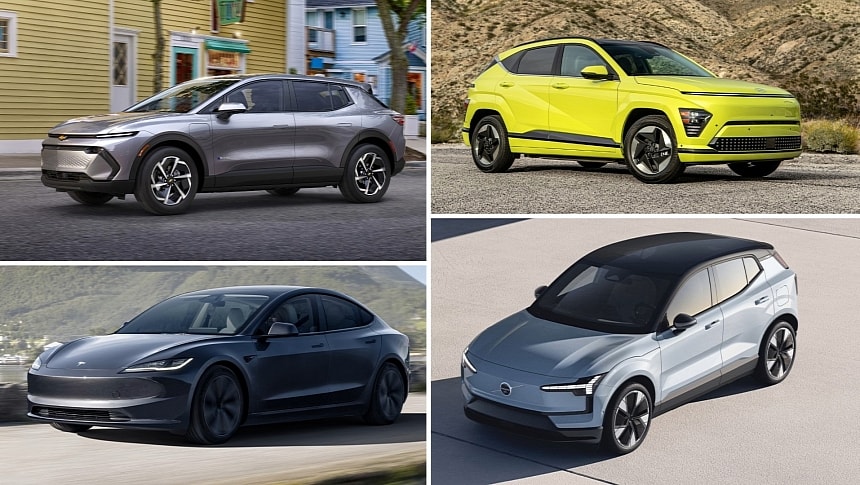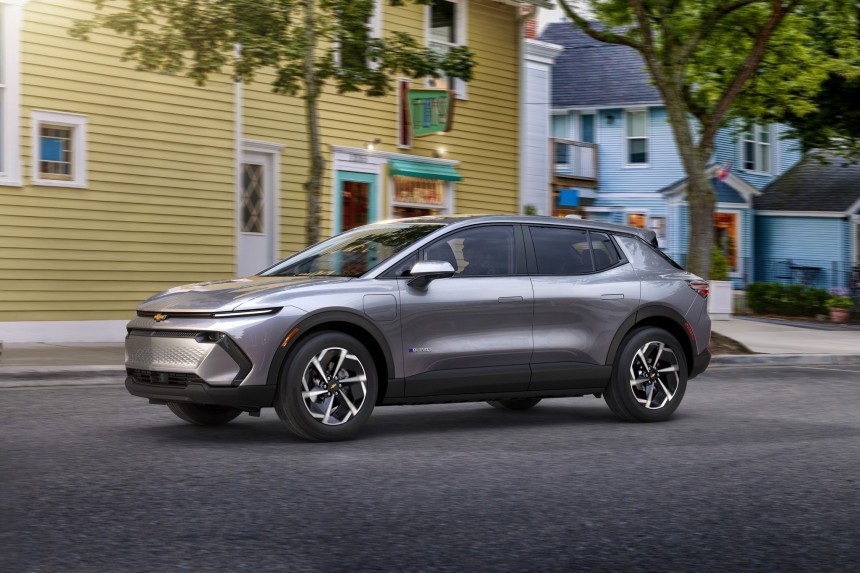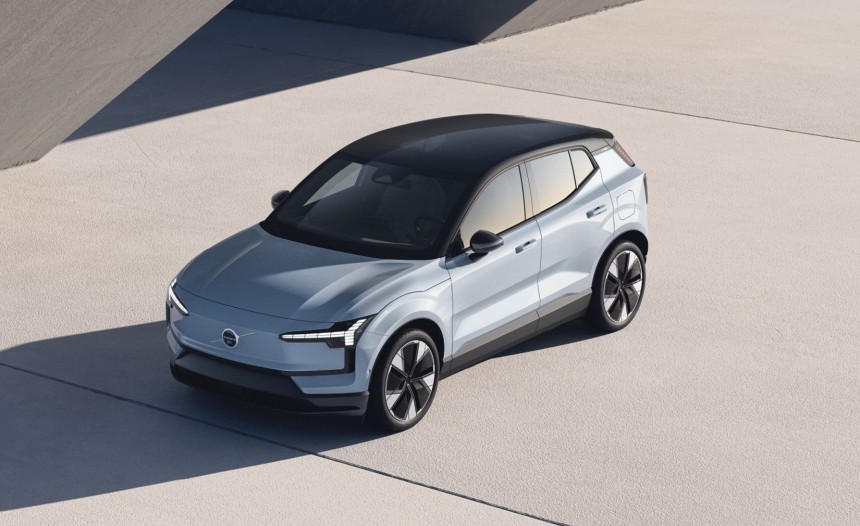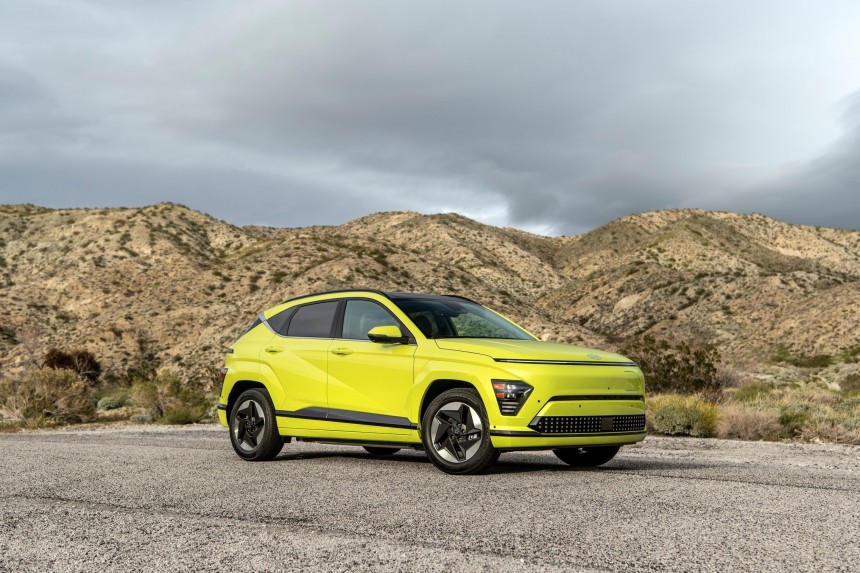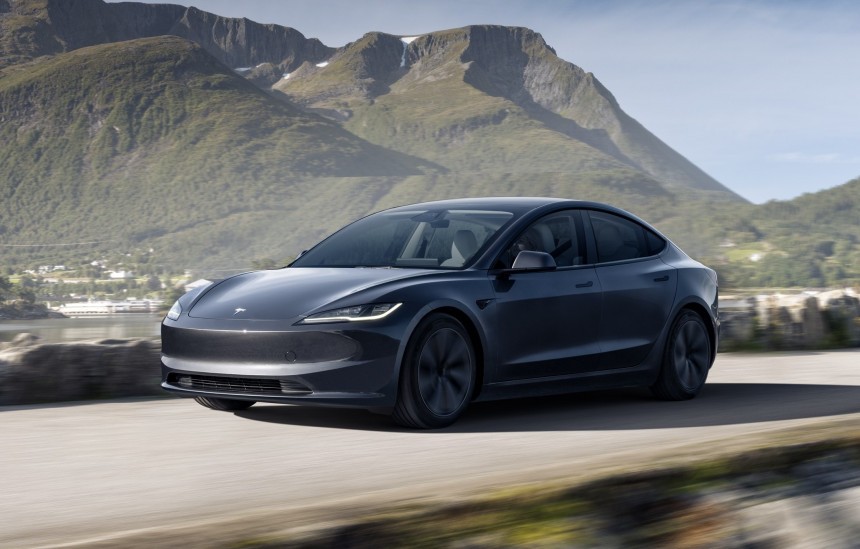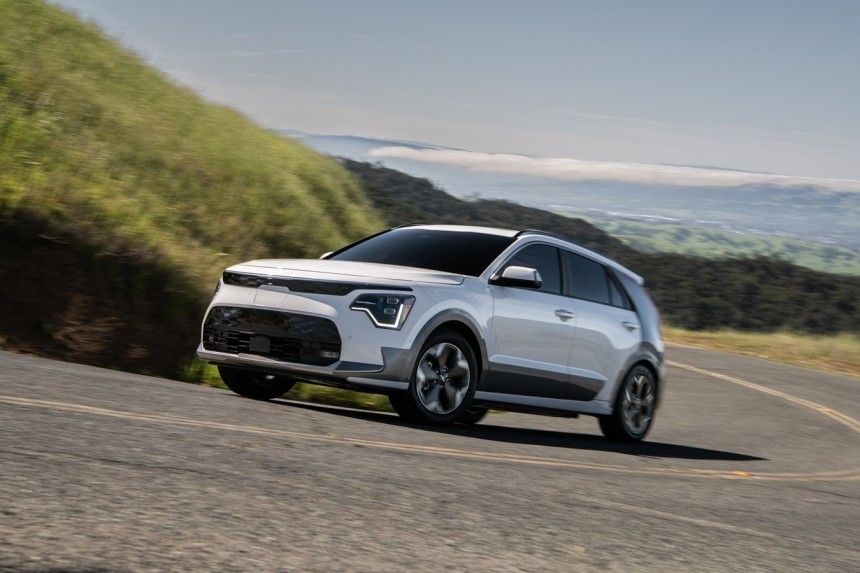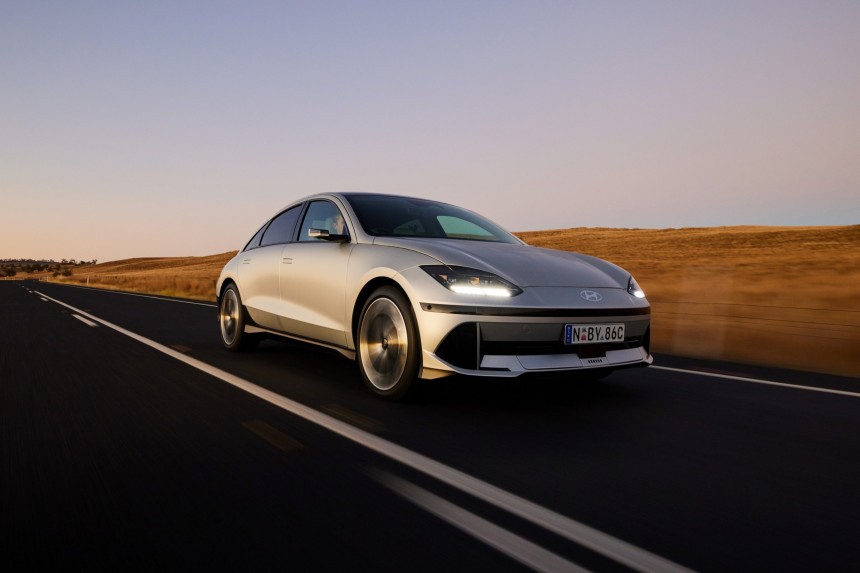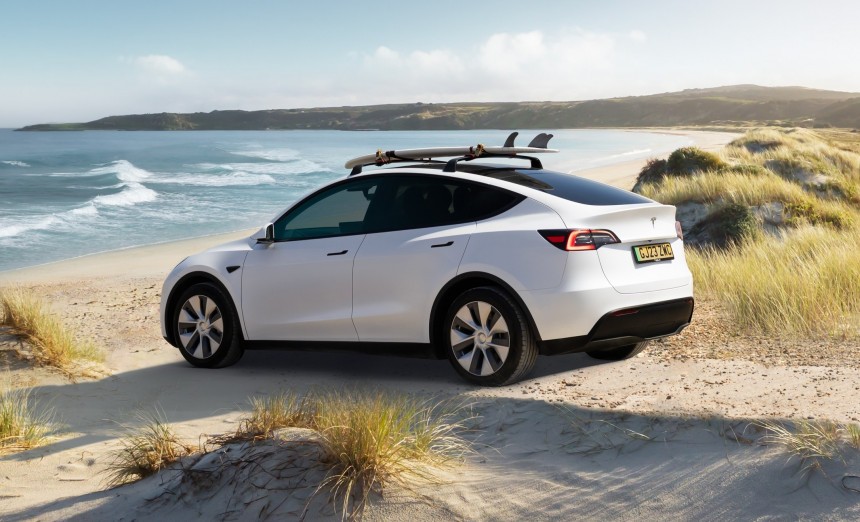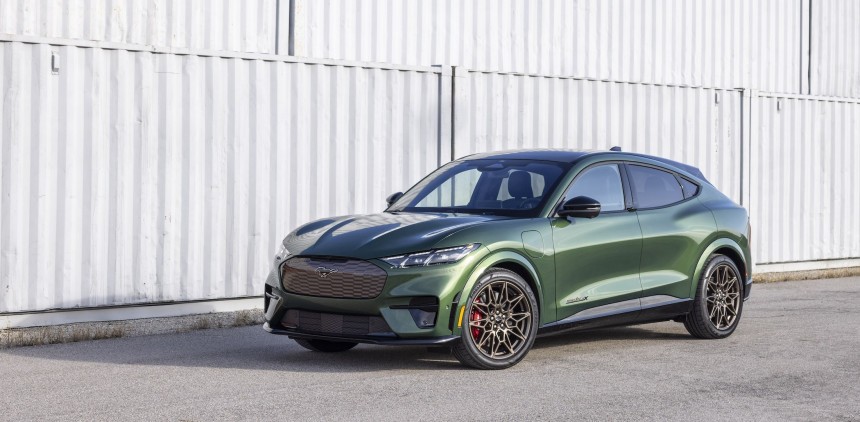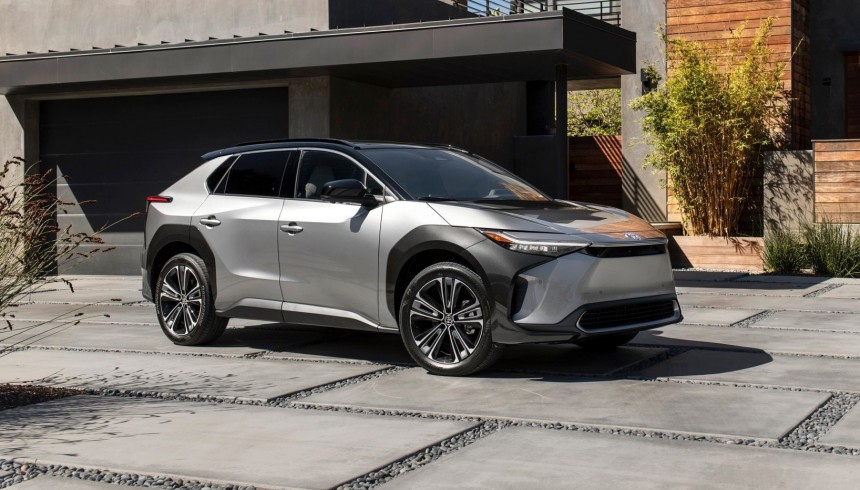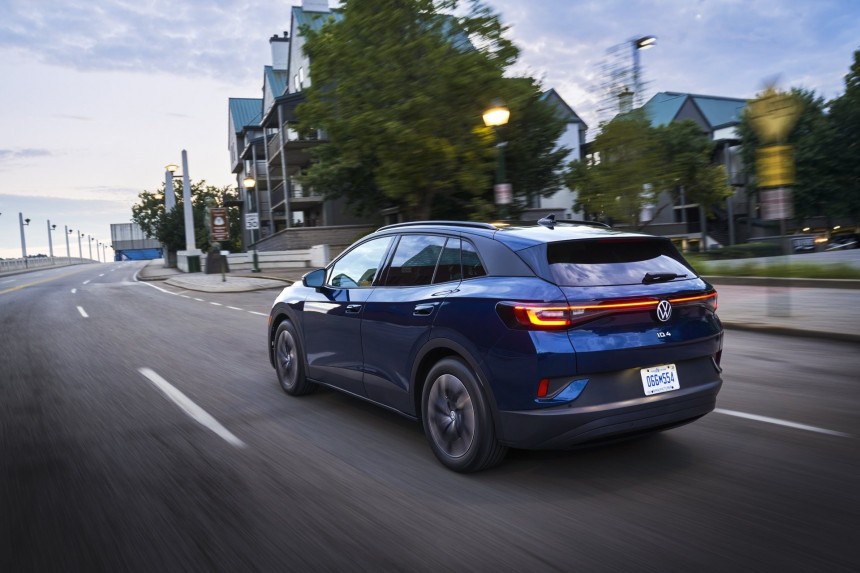The EV market matured as more people embraced electromobility, and carmakers stepped in to offer compelling models at all price points. There are dozens of EV models competing for your attention and wallet, and many are pretty competitive even compared to combustible vehicles. Here is a list of the most affordable ten EVs with over 250 miles (402 km) of range available on the US market.
Although more people have bought an electric vehicle in recent years, the US market remains dominated by gas cars. Roughly one in ten vehicles sold in the US were electric in 2023, much fewer than in China and Europe. However, things are changing fast, and some believe we're past the tipping point where EV adoption takes off. On the contrary, others want us to believe that everyone who wants an EV has bought one already, and adoption will slow down significantly.
Whatever the case, it's hard not to notice that electric vehicles improve fast with every generation and every new model launched in the market. People used to complain about range and price. Still, many affordable EVs today offer enough range to cover everyone's needs. Charging networks have also expanded, so the range is even less of an issue than most believe.
Many electric vehicles offer around 300 miles of range or more, this being considered the optimum range for a modern electric car. Even better, prices have decreased significantly, and the Inflation Reduction Act's incentives have made some EV models even more affordable. Few people know this, though, with many still thinking that electric power is expensive. Here is a list of the ten most affordable EVs that can still go over 250 miles on a charge.
Power: 210 horsepower
Battery capacity: 75 kWh
Range: 319 miles
IRA tax credit: $7,500
Set to arrive on the market "later in 2024," as stated on Chevrolet's webpage, the Equinox EV will become the most affordable electric vehicle. The spot has just been vacated with the demise of the Bolt EV/Bolt EUV duo. GM reconfirmed that the starting price of the 1LT variant will be $34,995, and the 2LT would retail for $43,295, still good enough to make it into this rankings. This is higher than the $30,000 price GM previously announced.
Despite the price increase, the Equinox EV should remain a compelling electric crossover with an attractive design and practical features. It's a best-seller, but only if GM builds it in significant quantities. So far, the Ultium EV production is not going well, so I wouldn't hold my breath on this one. However, with the Chevy Bolt out of production, GM needs a new EV best-seller if it's still committed to becoming an EV market leader.
The FWD variant of the Chevrolet Equinox EV is the most affordable and has the highest range, at 319 miles (513 km). An optional eAWD variant with 285 miles (460 km) of range will also be offered, although Chevrolet hasn't communicated the price premium of the dual-motor trim. With the 1LT trim, Chevrolet offers 19-inch aluminum wheels and Google Built-in for the 17.7-inch touchscreen infotainment system. The feature list also includes an 11-inch digital instrument cluster and manual adjustments for the front seats.
Power: 268 horsepower
Battery capacity: 69 kWh
Range: 275 miles
IRA tax credit: No
Volvo impressed everyone when it launched the EX30 small crossover in the US. It might be small on the outside, but the EX30 is a technology giant with many qualities. Most importantly, it has a price tag that puts it on a fast track to becoming one of the market's best-selling EVs. The EX30 is also efficient, being able to travel up to 275 miles (442 km) on a charge despite having a relatively small battery capacity of 69 kWh.
If you can afford to pay $10K more, you can get the AWD variant, a true sports car thanks to its 422-horsepower electric powertrain. You get a minor range penalty of 10 miles, but the fun you get in return (0-60 mph in 3.4 seconds) is well worth the price. And given the small cargo space, this might be the best quality of the Volvo EX30.
Although Volvo faced a few speedbumps with the software, rest assured that you'll be getting one of the safest and most feature-packed electric cars on the market. Volvo fitted the EX30 with a 360-degree camera system with a 3D view, Pilot Assist with Land Change Assistance, and Park Pilot Assist, among other driver-assistance systems. Above all, you'll be introduced to the world of the understated Scandinavian luxury.
Power: 201 horsepower
Battery capacity: 65 kWh
Range: 261 miles
IRA tax credit: No
Unlike the fancier Hyundai Ioniq 5, the Kona Electric is not using the E-GMP architecture. This makes it less efficient and less technologically advanced. The upside is the more affordable price, which puts it right behind the Chevrolet Equinox EV and the Volvo EX30. At $36,675 for a well-equipped SEL trim, the Kona Electric is a steal. You can go even lower with the $32,675 SE trim, but the smaller battery pack means you will not go more than 200 miles (322 km) on a charge.
Hyundai claims it developed the Kona as an EV-first and squeezed the combustion engine inside the ICE and hybrid variants of the crossover. However, the design doesn't look optimized for aerodynamic efficiency. On the other hand, the cabin space is great, and Hyundai offers a modern dashboard with plenty of features. The cargo area is also 33 percent roomier, making the Kona Electric a nice family car.
The charging is not its strong point, though, as the Hyundai Kona Electric needs 45 minutes to charge from 10% to 80% when hooked to a 100-kW DC charging station. That's also the maximum power it supports, so it's not great for road trips. Unlike the E-GMP electric vehicles, the Kona Electric doesn't support bi-directional charging and doesn't have an 800-volt electrical system.
Power: 279 horsepower
Battery capacity: 60 kWh
Range: 272 miles
IRA tax credit: No
Recently refreshed, the model 3 "Highland" has not worn its shine yet. In fact, the demand for the revamped model is so high that Tesla cannot build it quickly enough. Production ramp-up is also playing a role, which means that some trims are harder to come by, with the Long-Range AWD deliveries estimated for April-May. However, since we're after the cheapest of the lot, the RWD variant will do, with 272 miles of range for $38,990.
Despite the great price, the lack of the IRA tax credit makes its elder brother, Model Y, a better proposition. However, the appeal of Model 3 lies in the fresher design and newer technologies. Tesla also improved safety, comfort, and efficiency compared to the outgoing model. There's not much you might hate about the refreshed Model 3, with the stalkless design probably the only complaint.
The most affordable Tesla Model 3 uses a LFP battery pack, which explains the lower range but also offers some advantages. For once, you can charge it to 100% all the time, which means you get an extra 20% compared to ternary cells used in long-range trims. This levels the range field somehow, but the real advantage is that LFP cells have a much longer service life than NCA/NMC.
Power: 201 horsepower
Battery capacity: 65 kWh
Range: 253 miles
IRA tax credit: No
Kia Niro EV is closely related to the Hyundai Kona Electric, sharing the same vehicle architecture. However, the revamped Niro was launched before the new Kona as a 2023 model. As is usually the case, the new model has more equipment and improved specifications, which seem on par with its Hyundai relative. Range is lower, at 253 miles (407 km), and the price is higher, but other characteristics are identical.
As Kia's entry-level EV, the Niro EV doesn't have a heat pump fitted as standard, so make sure you buy it with the Preserve Package if you're living in a colder region. On the plus side, the equipment is rich, even in the Wind base trim. Goodies include dual 10.25-inch screens for the instrument cluster and infotainment system, an eight-speaker audio system from Harman Kardon, and a bi-tone interior theme for the Wave top trim.
A comprehensive driver-assist package is also standard, making the Niro EV a compelling proposition. Those looking for even more options and an arguably better EV experience should consider the Kia EV6, which starts at $45,950 and is also available as an AWD electric crossover. The range is also higher, at 310 miles (500 km), not to mention the DC charging time, which is the most critical drawback of the Niro EV.
Power: 225 horsepower
Battery capacity: 77 kWh
Range: 361 miles
IRA tax credit: No
This is currently the longest-range electric model in Hyundai's lineup and one of the top contenders in the range championship. The design looks bizarre to many people, but it's a direct result of aerodynamic optimizations. The Ioniq 6 boasts an impressive 0.22 drag coefficient, resulting from painstaking fine-tuning in the wind tunnel.
Using the same E-GMP platform as the Ioniq 5, the Hyundai Ioniq 6 can go almost 60 miles further, which is nothing to scoff at. This goes for the RWD variant because the AWD has a smaller range, at 316 miles (509 km). Even so, it's more than most people need during their daily commutes and occasional road trips during holidays.
Despite its peculiar design, the Ioniq 6 is sleek and modern, with more than a decent space for passengers and their luggage. The Korean electric sedan offers exciting features like bi-directional charging and an impressive driver-assistance package. Thanks to its 800-volt architecture, the Hyundai Ioniq 6 is one of the fastest-charging EVs on the planet, needing only 18 minutes to go from 10% to 80% when hooked to a 350-kW charger.
Power: 295 horsepower
Battery capacity: 67 kWh
Range: 260 miles
IRA tax credit: $7,500
The best-selling car in the world didn't get its crown for nothing, and being an electric vehicle is even more impressive. However, what makes it truly extraordinary is that Tesla can offer it at a price that makes every other EV in the market, including the Model 3, overpriced. Even better, the Tesla Model Y qualifies for the $7,500 IRA tax credit, which means it's less expensive than comparable ICE models.
The Model Y offers impressive features, including vast interior and trunk space, which allows Tesla to provide a 3-row option. This is not available for the RWD variant, and in the case of the Long Range AWD, it costs a whopping $3,000 extra. The space for third-row passengers is not great, but it can be helpful for short trips when more people need to share the vehicle.
The base-version Tesla Model Y RWD features a 67-kWh battery, providing a decent 260-mile (418-km) range. It offers brisk performance, with a 0-60 time of 6.6 seconds. Add to that the benefit of having the Supercharger network at your service, and you see why most people considering an electric car have the Model Y at the top of their list.
Power: 266 horsepower
Battery capacity: 75 kWh
Range: 250 miles
IRA tax credit: no
Once touted as a Tesla Model Y killer, the Ford Mustang Mach-E has since become the poor man's electric crossover. Thousands lie around at Ford dealerships across the country, which is why you might get a sweet deal if you buy one.
Even at MSRP, the Mustang Mach-E provides plenty of reasons to choose it, although the Tesla Model Y is better and cheaper. Since January 1, the Mustang Mach-E also lost the tax credit eligibility, making it even harder to justify choosing it over Tesla's crossover.
The best quality of the Ford Mustang Mach-E is that it lives up to its name and can be very agile despite weighing more than 4,500 lbs./2,000 kg. Even in the base trim we chose for our rankings, the electric pony is pretty agile and can do 0-60 in 5.8 seconds. The downside is a more rigid suspension, which affects comfort.
Power: 201 horsepower
Battery capacity: 71 kWh
Range: 252 miles
IRA tax credit: no
Toyota was the laughingstock of the EV community for its reluctance to embrace electric vehicles. Its first and only electric model, the bZ4X crossover, was plagued with issues, although the Japanese carmaker has solved them and improved the bZ4X tremendously. For the 2024 model year, Toyota enhanced the charging experience, one of the issues many people complained about.
The 2024 Toyota bZ4X has an improved thermal management system, allowing it to offer a better ownership experience in cold climates. Not only that but standard equipment has also been upgraded, with the base version XLE getting an 8-way power adjustable driver's seat and power liftgate for easy access.
Although the Toyota bZ4X is spacious and comfortable, it's not practical, missing a glove compartment and a frunk. Charging it at a DC charger also takes longer than many modern EVs. At over 30 minutes for a typical 10%-80% charge, the Toyota bZ4X is not very good for family road trips.
Power: 201 horsepower
Battery capacity: 82 kWh
Range: 275 miles
IRA tax credit: $7,500
Volkswagen ID.4 is the only EV on our list, besides the Tesla Model Y, qualifying for the IRA tax credit at the time of writing. This makes buying the Chattanooga-built electric crossover even more attractive. Volkswagen offers a wide range of features and trims, but we're only here for the cheapest that fits our criteria. That would be the Pro trim with rear-wheel drive, which offers 201 horsepower, like many other entry-level EVs, and 275 miles (443 km) of range.
The ID.4 is built on Volkswagen's MEB architecture, which is no longer competitive with other offerings on the market. As such, the fast charging is limited to 135 kW, but this is still enough to charge the battery from 10% to 80% in about half an hour. Owners also constantly complain about software issues, although these seem to have been mostly sorted out with recent updates.
Volkswagen is offering the ID.4 at an affordable price, which helps it remain relevant in a market dominated by Tesla. However, this is not its only quality, as many ID.4 owners testify. For starters, the German crossover has one of the most spacious interiors in its segment. The cargo space measures 64.2 cu-ft (1,818 liters), slightly bigger than the Ford Mustang Mach-E. The ID.4 is also more comfortable than other EVs in its segment.
Whatever the case, it's hard not to notice that electric vehicles improve fast with every generation and every new model launched in the market. People used to complain about range and price. Still, many affordable EVs today offer enough range to cover everyone's needs. Charging networks have also expanded, so the range is even less of an issue than most believe.
Many electric vehicles offer around 300 miles of range or more, this being considered the optimum range for a modern electric car. Even better, prices have decreased significantly, and the Inflation Reduction Act's incentives have made some EV models even more affordable. Few people know this, though, with many still thinking that electric power is expensive. Here is a list of the ten most affordable EVs that can still go over 250 miles on a charge.
1. Chevrolet Equinox EV 1LT
Price: $34,995Power: 210 horsepower
Battery capacity: 75 kWh
Range: 319 miles
IRA tax credit: $7,500
Despite the price increase, the Equinox EV should remain a compelling electric crossover with an attractive design and practical features. It's a best-seller, but only if GM builds it in significant quantities. So far, the Ultium EV production is not going well, so I wouldn't hold my breath on this one. However, with the Chevy Bolt out of production, GM needs a new EV best-seller if it's still committed to becoming an EV market leader.
The FWD variant of the Chevrolet Equinox EV is the most affordable and has the highest range, at 319 miles (513 km). An optional eAWD variant with 285 miles (460 km) of range will also be offered, although Chevrolet hasn't communicated the price premium of the dual-motor trim. With the 1LT trim, Chevrolet offers 19-inch aluminum wheels and Google Built-in for the 17.7-inch touchscreen infotainment system. The feature list also includes an 11-inch digital instrument cluster and manual adjustments for the front seats.
2. Volvo EX30 Single Motor Extended Range
Price: starting at $36,245Power: 268 horsepower
Battery capacity: 69 kWh
Range: 275 miles
IRA tax credit: No
If you can afford to pay $10K more, you can get the AWD variant, a true sports car thanks to its 422-horsepower electric powertrain. You get a minor range penalty of 10 miles, but the fun you get in return (0-60 mph in 3.4 seconds) is well worth the price. And given the small cargo space, this might be the best quality of the Volvo EX30.
Although Volvo faced a few speedbumps with the software, rest assured that you'll be getting one of the safest and most feature-packed electric cars on the market. Volvo fitted the EX30 with a 360-degree camera system with a 3D view, Pilot Assist with Land Change Assistance, and Park Pilot Assist, among other driver-assistance systems. Above all, you'll be introduced to the world of the understated Scandinavian luxury.
3. Hyundai Kona EV SEL
Price: starting at $36,675Power: 201 horsepower
Battery capacity: 65 kWh
Range: 261 miles
IRA tax credit: No
Hyundai claims it developed the Kona as an EV-first and squeezed the combustion engine inside the ICE and hybrid variants of the crossover. However, the design doesn't look optimized for aerodynamic efficiency. On the other hand, the cabin space is great, and Hyundai offers a modern dashboard with plenty of features. The cargo area is also 33 percent roomier, making the Kona Electric a nice family car.
The charging is not its strong point, though, as the Hyundai Kona Electric needs 45 minutes to charge from 10% to 80% when hooked to a 100-kW DC charging station. That's also the maximum power it supports, so it's not great for road trips. Unlike the E-GMP electric vehicles, the Kona Electric doesn't support bi-directional charging and doesn't have an 800-volt electrical system.
4. Tesla Model 3 RWD
Price: starting at $38,990Power: 279 horsepower
Battery capacity: 60 kWh
Range: 272 miles
IRA tax credit: No
Despite the great price, the lack of the IRA tax credit makes its elder brother, Model Y, a better proposition. However, the appeal of Model 3 lies in the fresher design and newer technologies. Tesla also improved safety, comfort, and efficiency compared to the outgoing model. There's not much you might hate about the refreshed Model 3, with the stalkless design probably the only complaint.
The most affordable Tesla Model 3 uses a LFP battery pack, which explains the lower range but also offers some advantages. For once, you can charge it to 100% all the time, which means you get an extra 20% compared to ternary cells used in long-range trims. This levels the range field somehow, but the real advantage is that LFP cells have a much longer service life than NCA/NMC.
5. Kia Niro EV Wind
Price: starting at $39,600Power: 201 horsepower
Battery capacity: 65 kWh
Range: 253 miles
IRA tax credit: No
As Kia's entry-level EV, the Niro EV doesn't have a heat pump fitted as standard, so make sure you buy it with the Preserve Package if you're living in a colder region. On the plus side, the equipment is rich, even in the Wind base trim. Goodies include dual 10.25-inch screens for the instrument cluster and infotainment system, an eight-speaker audio system from Harman Kardon, and a bi-tone interior theme for the Wave top trim.
A comprehensive driver-assist package is also standard, making the Niro EV a compelling proposition. Those looking for even more options and an arguably better EV experience should consider the Kia EV6, which starts at $45,950 and is also available as an AWD electric crossover. The range is also higher, at 310 miles (500 km), not to mention the DC charging time, which is the most critical drawback of the Niro EV.
6. Hyundai Ioniq 6 RWD SE
Price: starting at $42,450Power: 225 horsepower
Battery capacity: 77 kWh
Range: 361 miles
IRA tax credit: No
Using the same E-GMP platform as the Ioniq 5, the Hyundai Ioniq 6 can go almost 60 miles further, which is nothing to scoff at. This goes for the RWD variant because the AWD has a smaller range, at 316 miles (509 km). Even so, it's more than most people need during their daily commutes and occasional road trips during holidays.
Despite its peculiar design, the Ioniq 6 is sleek and modern, with more than a decent space for passengers and their luggage. The Korean electric sedan offers exciting features like bi-directional charging and an impressive driver-assistance package. Thanks to its 800-volt architecture, the Hyundai Ioniq 6 is one of the fastest-charging EVs on the planet, needing only 18 minutes to go from 10% to 80% when hooked to a 350-kW charger.
7. Tesla Model Y RWD
Price: $42,990Power: 295 horsepower
Battery capacity: 67 kWh
Range: 260 miles
IRA tax credit: $7,500
The Model Y offers impressive features, including vast interior and trunk space, which allows Tesla to provide a 3-row option. This is not available for the RWD variant, and in the case of the Long Range AWD, it costs a whopping $3,000 extra. The space for third-row passengers is not great, but it can be helpful for short trips when more people need to share the vehicle.
The base-version Tesla Model Y RWD features a 67-kWh battery, providing a decent 260-mile (418-km) range. It offers brisk performance, with a 0-60 time of 6.6 seconds. Add to that the benefit of having the Supercharger network at your service, and you see why most people considering an electric car have the Model Y at the top of their list.
8. Ford Mustang Mach-E RWD Select
Price: $42,995Power: 266 horsepower
Battery capacity: 75 kWh
Range: 250 miles
IRA tax credit: no
Even at MSRP, the Mustang Mach-E provides plenty of reasons to choose it, although the Tesla Model Y is better and cheaper. Since January 1, the Mustang Mach-E also lost the tax credit eligibility, making it even harder to justify choosing it over Tesla's crossover.
The best quality of the Ford Mustang Mach-E is that it lives up to its name and can be very agile despite weighing more than 4,500 lbs./2,000 kg. Even in the base trim we chose for our rankings, the electric pony is pretty agile and can do 0-60 in 5.8 seconds. The downside is a more rigid suspension, which affects comfort.
9. Toyota bZ4X FWD XLE
Price: $43,070Power: 201 horsepower
Battery capacity: 71 kWh
Range: 252 miles
IRA tax credit: no
The 2024 Toyota bZ4X has an improved thermal management system, allowing it to offer a better ownership experience in cold climates. Not only that but standard equipment has also been upgraded, with the base version XLE getting an 8-way power adjustable driver's seat and power liftgate for easy access.
Although the Toyota bZ4X is spacious and comfortable, it's not practical, missing a glove compartment and a frunk. Charging it at a DC charger also takes longer than many modern EVs. At over 30 minutes for a typical 10%-80% charge, the Toyota bZ4X is not very good for family road trips.
10. Volkswagen ID.4 Pro
Price: $43,995Power: 201 horsepower
Battery capacity: 82 kWh
Range: 275 miles
IRA tax credit: $7,500
The ID.4 is built on Volkswagen's MEB architecture, which is no longer competitive with other offerings on the market. As such, the fast charging is limited to 135 kW, but this is still enough to charge the battery from 10% to 80% in about half an hour. Owners also constantly complain about software issues, although these seem to have been mostly sorted out with recent updates.
Volkswagen is offering the ID.4 at an affordable price, which helps it remain relevant in a market dominated by Tesla. However, this is not its only quality, as many ID.4 owners testify. For starters, the German crossover has one of the most spacious interiors in its segment. The cargo space measures 64.2 cu-ft (1,818 liters), slightly bigger than the Ford Mustang Mach-E. The ID.4 is also more comfortable than other EVs in its segment.
